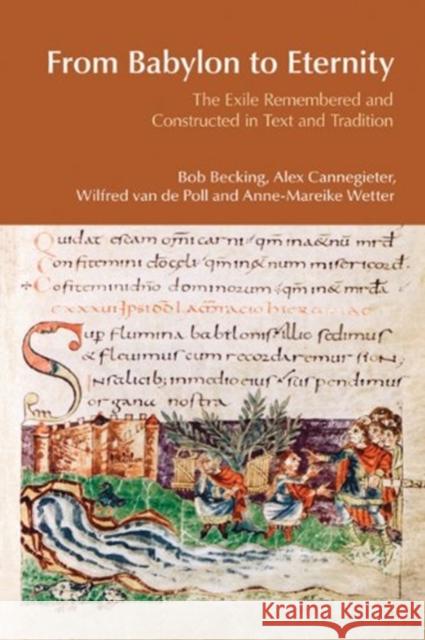From Babylon to Eternity: The Exile Remembered and Constructed in Text and Tradition » książka
From Babylon to Eternity: The Exile Remembered and Constructed in Text and Tradition
ISBN-13: 9781845533052 / Angielski / Twarda / 2010 / 119 str.
From Babylon to Eternity: The Exile Remembered and Constructed in Text and Tradition
ISBN-13: 9781845533052 / Angielski / Twarda / 2010 / 119 str.
(netto: 764,94 VAT: 5%)
Najniższa cena z 30 dni: 705,23
ok. 16-18 dni roboczych.
Darmowa dostawa!
"At a time when many volumes of collected essays are much larger in size, From Babylon to Eternity offers a refreshing change. At 113 pages the book is easily read in a handful of sittings. The effect of this continuous reading is something missed in larger topical collections. Reading the book through, the reader is taken through circles of interpretation starting closest to the event and working outward to matters of interpretation. These interpretations move from the event and its ancient traditions to modern interpretations. In this regard, the collection of essays certainly accomplishes its stated goal." -- Eric Lee Welch, The Pennsylvania State University, Biblical Interpretation Generally, readers have a negative idea of the Exile. Psalm 137 has fuelled the idea that this was a time of sorrow and despair. This image of the Exile influenced, for instance, Luthers ideas on the Babylonian Captivity of the Church. The four essays in this volume deconstruct and reconstruct this image. Bob Becking tries to recreate a history of the exile. On the basis of the available evidence, this could be no more than a fragmented history, nevertheless showing that the fate of the exiles was not as bad as often supposed. Anne Mareike Wetter reveals that the biblical image of exile is multi facetted. She shows how a tradition of a people tied to their God-given land was challenged by the reality of foreign occupation. And how that people eventually succeeded in translating this experience, appropriating them through a transformation into a counter-tradition that enabled them to cope with the new situation, without breaking entirely with their cultural and religious heritage. Jewish ideas on Exile are discussed by Wilfred van der Poll. He concentrates on the use of the concept of galut, which refers to the paradigmatic and identity-shaping function of the dispersion of the people of Israel and showed that the exile in Jewish thinking had become a permanent reality up until the present day. From the perspective of intertextual reading, Alex Cannegieter discusses four texts of varying ages and background Augustine, Petrarch, Luther, and a Dutch sermon held after the end of the Second World War. She explores the ways authors chose biblical texts to appropriate them a new context, thereby changing the meaning of the new, as well as the source texts.











